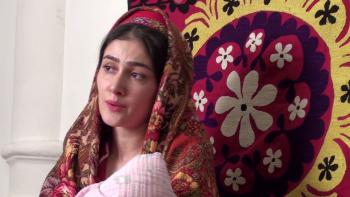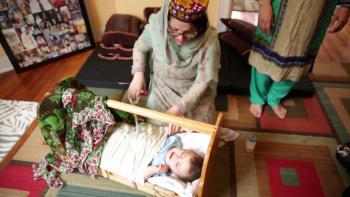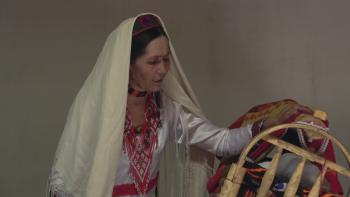Lullabies of New York
Lullabies of New York (CFLNY) will recruit and train artists, grassroots organizations, community advocates, youth, and ethnic media journalists with strong ties to folk and traditional art forms to become “Citizen Folklorists” (CFs) and document traditional lullabies. CFLNY will train CFs to: (1) work within their own communities to responsibly record traditional lullabies and document them with cell phones, cameras, ethnographic interviews, and still photography; (2) present at local community festivals to share their findings and the artists with whom they have worked (when applicable) (3) use best practices in depositing their digital assets within the online content management system called NYSCA Living Traditions.
Ganjina Qurbonbekova, a Shughni speaker from Khorog in the Pamir region of Tajikistan, now living in New York, sings the Shughni lullaby made famous by singer Nargis Bandishoeva. In ths second video, she discusses this famous Shughni lullaby and the efforts of the Shughni-speaking community in New York to maintain its culture and language.
Verbal Arts
Music
At home in Brooklyn, thousands of miles from the Hunza Valley of northern Pakistan, Amina Bibi passes on the Wakhi language to her 1-year-old son Alhan - through lullabies. In Wakhi with Wakhi and English subtitles by Husniya Khujamyorova. Part of the Lullabies of New York Project, supported by the Brooklyn Arts Council.
In the second video, Jamila Bibi, a Wakhi speaker from the Gojal Valley in the Hunza District of northern Pakistan, tells the story of her family and her language. In Wakhi with Wakhi and English subtitles by Husniya Khujamyorova.
Verbal Arts
Music
Mirgulova Shirmo, a Rushani speaker originally from Vamar in the Rushan region of Tajikistan, sings a Rushani lullaby. In th second video, she discusses the lullaby and its wider context in her life. Part of the Lullabies of New York Project, supported by the Brooklyn Arts Council. In Rushani with Rushani and English subtitles by Husniya Khujamyorova.
Verbal Arts
Music
Asalbegim Mamadalibekova sings a traditional Wakhi lullaby (or lalajik). In the second video, she discusses the lullaby's wider significance in the community



